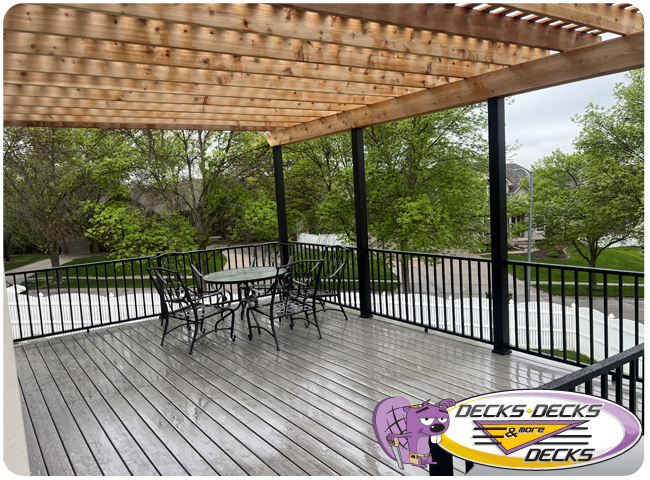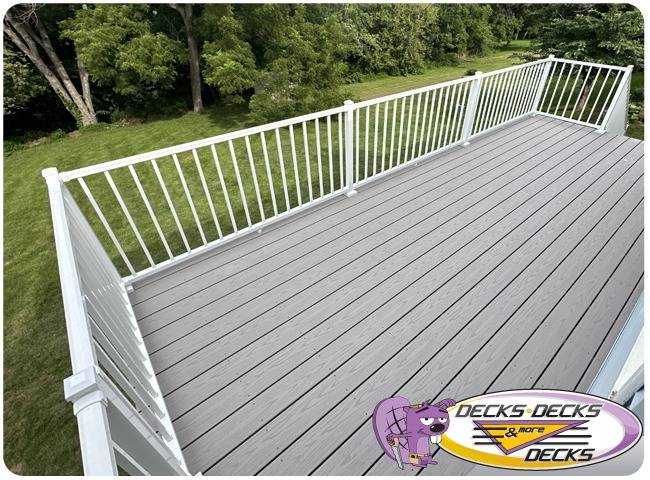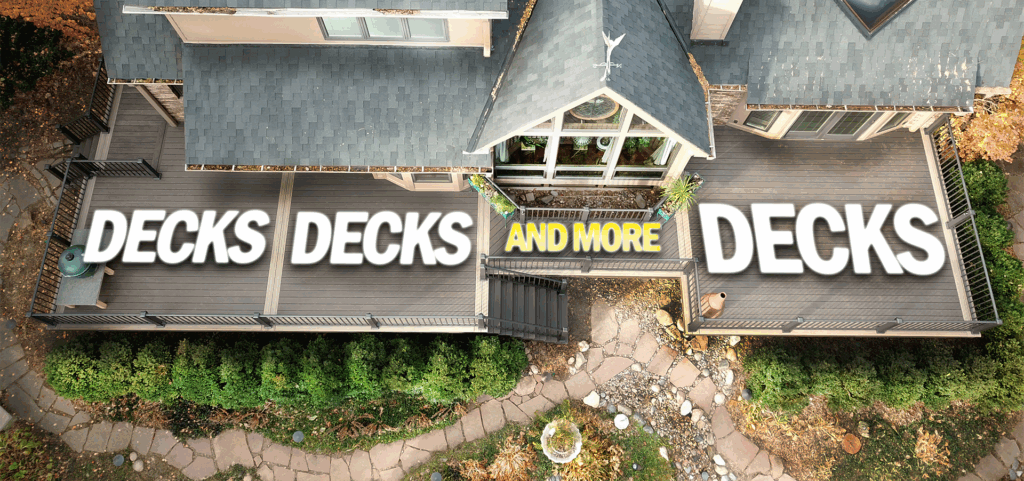Types of Composite Decking: A Comprehensive Guide
Composite decking has become a popular choice for homeowners seeking a low-maintenance, durable, and aesthetically pleasing alternative to traditional wood. Made from a blend of wood fibers and plastic, composite decking offers various styles and performance levels to suit different needs and preferences. Here’s a comprehensive guide to the different types of composite decking available, helping you make an informed choice for your outdoor space.
1. Traditional Composite Decking
Overview: Traditional composite decking is the most common type, featuring a blend of wood fibers and recycled plastic. It offers a natural wood look without the high maintenance required for real wood.
Features:
- Appearance: Mimics the appearance of natural wood with a variety of colors and grain patterns.
- Durability: Resistant to rot, splintering, and insect damage.
- Maintenance: Low maintenance compared to wood, requiring occasional cleaning.
Benefits:
- Aesthetic Variety: Available in numerous colors and textures to match your style.
- Longevity: Designed to last longer than traditional wood decking.
Considerations:
- Cost: Generally more expensive than pressure-treated wood.
- Heat Retention: Can become hot under direct sunlight.
2. Capped Composite Decking
Overview: Capped composite decking features a protective layer of plastic that encases the core of the decking boards. This cap enhances the board’s durability and resistance to stains, scratches, and fading.
Features:
- Capped Surface: Provides an extra layer of protection against environmental elements.
- Enhanced Durability: More resistant to moisture and UV damage compared to traditional composite decking.
- Easy Maintenance: Requires less frequent cleaning and maintenance.
Benefits:
- Improved Longevity: The cap protects against wear and extends the lifespan of the decking.
- Low Maintenance: The capped surface makes cleaning easier and reduces the need for staining.
Considerations:
- Cost: Typically more expensive than traditional composite decking due to the added cap.
- Color Options: Limited to the colors and textures available in capped designs.
3. Ultra-Low Maintenance Composite Decking
Overview: Ultra-low maintenance composite decking takes durability and ease of care to the next level. It is designed to offer exceptional resistance to staining, fading, and weathering with minimal upkeep.
Features:
- Advanced Technology: Utilizes advanced composite materials and manufacturing processes for superior performance.
- Enhanced Protection: Offers exceptional resistance to stains, mold, and mildew.
- Easy Cleaning: Requires minimal effort to keep clean and looking new.
Benefits:
- Long-Term Durability: Designed to withstand harsh weather conditions and heavy use.
- Effortless Care: Reduces the time and effort needed for maintenance.
Considerations:
- Premium Cost: Generally the most expensive option due to advanced materials and technology.
- Limited Design Variety: Fewer color and texture options compared to other types of composite decking.

4. Composite Decking with PVC Coating
Overview: Composite decking with a PVC coating offers an additional layer of protection, combining the benefits of composite materials with the enhanced durability of PVC.
Features:
- PVC Coating: Provides a protective layer over the composite core, enhancing its resistance to moisture, stains, and UV damage.
- Durability: Highly resistant to scratching, denting, and fading.
- Easy Maintenance: Requires minimal cleaning and is resistant to mold and mildew.
Benefits:
- Superior Protection: The PVC coating adds an extra layer of durability and resistance.
- Long-Term Performance: Offers excellent longevity and performance in various weather conditions.
Considerations:
- Higher Cost: Typically more expensive due to the PVC coating and additional manufacturing processes.
- Appearance: The look and feel may differ from traditional composite decking, with some designs having a more uniform appearance.
5. Recycled Composite Decking
Overview: Recycled composite decking is made from recycled materials, including wood fibers and plastic, making it an eco-friendly choice for environmentally conscious homeowners.
Features:
- Eco-Friendly: Made from recycled materials, reducing waste and environmental impact.
- Variety of Options: Available in various colors and styles similar to traditional composite decking.
Benefits:
- Environmental Impact: Helps reduce landfill waste and promotes sustainability.
- Durability: Offers similar performance characteristics to standard composite decking.
Considerations:
- Cost: May be slightly more expensive than standard composite decking due to the recycling process.
- Design Variations: Design options may be limited based on the availability of recycled materials.
Conclusion
Choosing the right type of composite decking for your outdoor space involves considering factors such as durability, maintenance, cost, and aesthetic preferences. From traditional composite decking to advanced ultra-low maintenance options, there are various types to suit different needs and budgets. By understanding the features and benefits of each type, you can make an informed decision that ensures your new deck is both functional and beautiful.
Check Out This Blog!
 free estimates: (402) 690-1050
free estimates: (402) 690-1050

